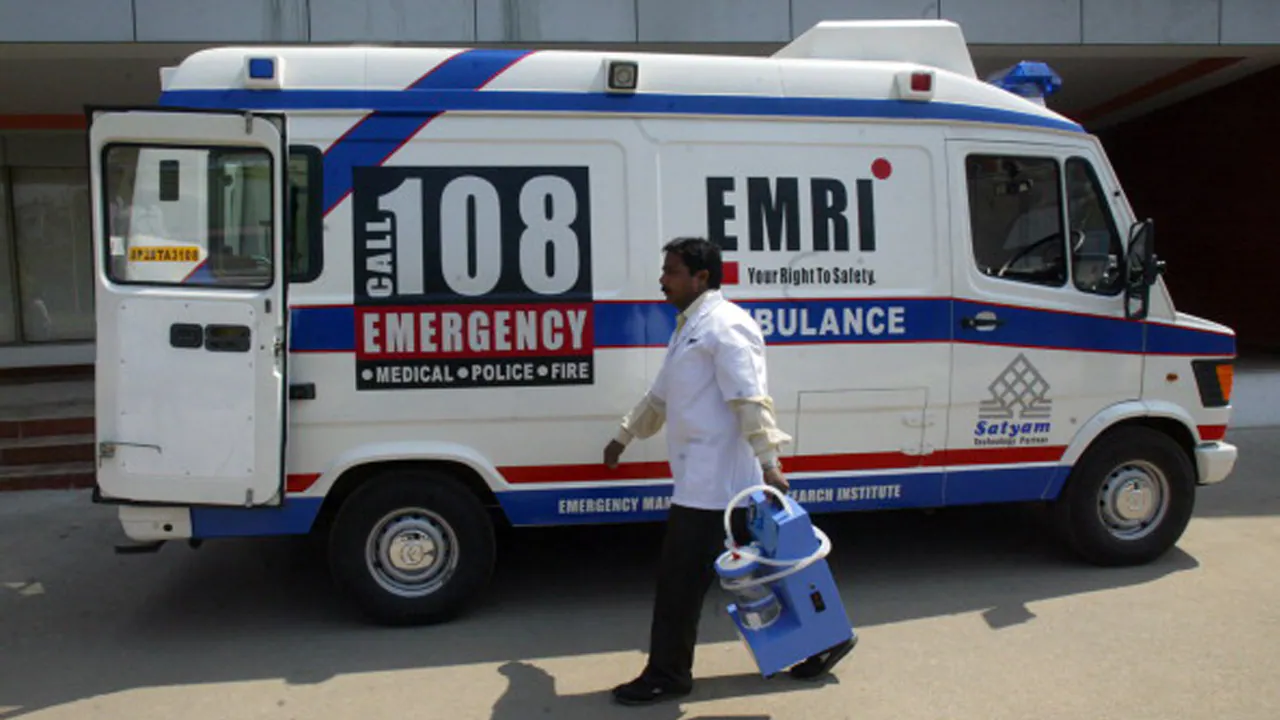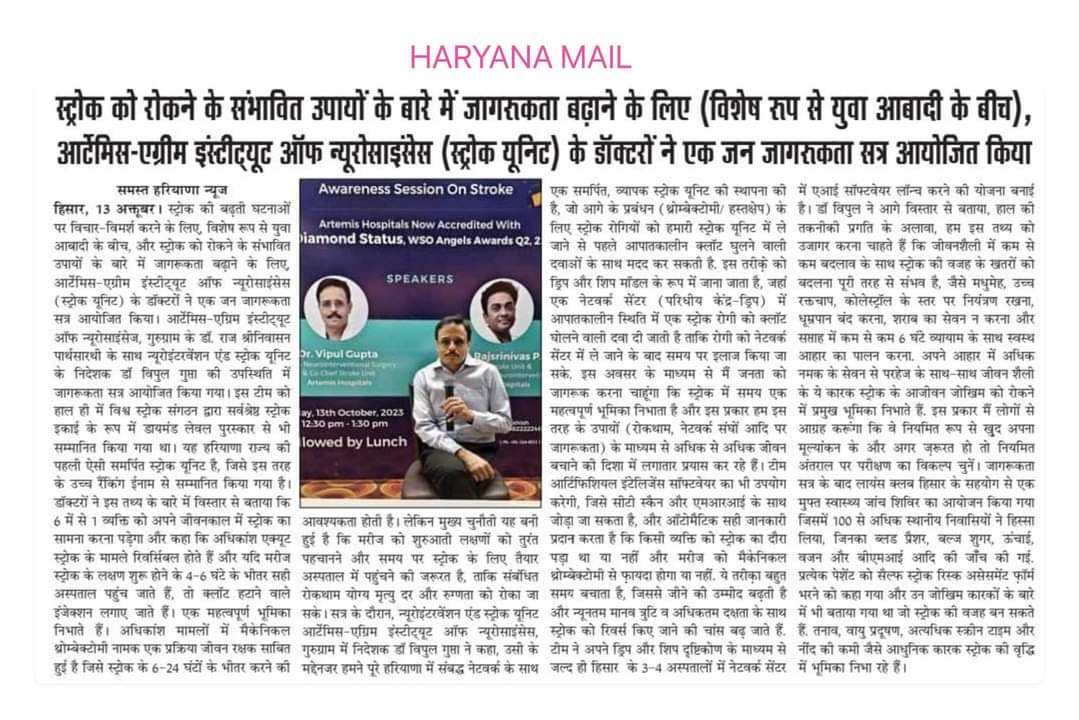
Do you know F.A.S.T?
Stroke is one of the main killers of Young adults. Recognize stroke warning signs to save a life. The letters (Face, Arms, Speech, and Time) can help you see the symptoms of an acute stroke in someone else and find help as soon as possible.
For Patients and Caregivers:
Stroke Warning Signs
Recognize the warning signs and call 108 immediately. This can make the difference between a strong recovery and disability or even death.
Stroke Prevention
Whole body wellness can help you feel stronger, healthier and mentally sharp – and it can also reduce your stroke risk.
Stroke Recovery
There is life – and hope – after stroke. With time, new routines will become second nature. Rehabilitation can build your strength, capability and confidence.
For Healthcare Professionals:
Cryptogenic Stroke
Our updated Healthcare Professional Guide can help diagnose the underlying reason for cryptogenic stroke and tailor prevention plans for your patients.
EMS Routing
Consensus recommendations can help ensure acute stroke patients are triaged to the facility.
Secondary Prevention
Our May 2021 Guideline provides clinicians with the latest evidence-based recommendations for preventing another stroke.
By learning the F.A.S.T. warning signs, you just might save a life from stroke.

Face Drooping
Ask the person to smile. Is the person's smile uneven?
Arm Weakness
Ask the person to raise both arms. Does one arm drift downward?
Speech
Is the person unable to speak or hard to understand? Ask the person to repeat a simple sentence, like "The sky is blue."
Time to Call 108
Check the time so you'll know when the first symptoms appeared.Aphasia and Stroke
This common post-stroke language disorder affects the ability to communicate, causing frustration and confusion. Treatment and strategies can help – check out our fact sheets, tips and other resources.
Stroke Support Groups
Connect with others with similar experiences, learn helpful information and help ease the depression and isolation that’s common after stroke. Use our support group finder for a list of groups near you.

-
| Can 10,000 steps a day keep stroke at bay? Artemis Hospitals
-
World Stroke Day | World Stroke Day - Stroke Awareness (FAST)
-
F.A.S.T. Can Save Lives | A stroke can happen at any age. Learn how to spot a stroke F.A.S.T. – if you see Face drooping, Arm weakness, or Speech difficulty, it’s Time to call 108.
-
Dr. Rajsrinivas Parthasarathy | Increasing Cases of Stroke - Dr. Rajsrinivas Parthasarathy
-
Dr. Vipul Gupta | Golden Hour concept: Stroke- Dr. Vipul Gupta, Neurointerventional Surgery & Co-Chief Stroke Unit
-
Dr. Vipul Gupta | Patient Testimonial: Successful Brain Stroke Surgery
